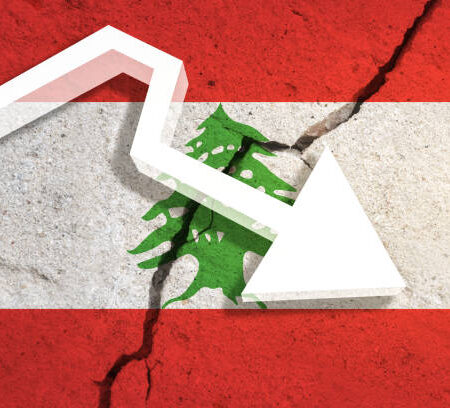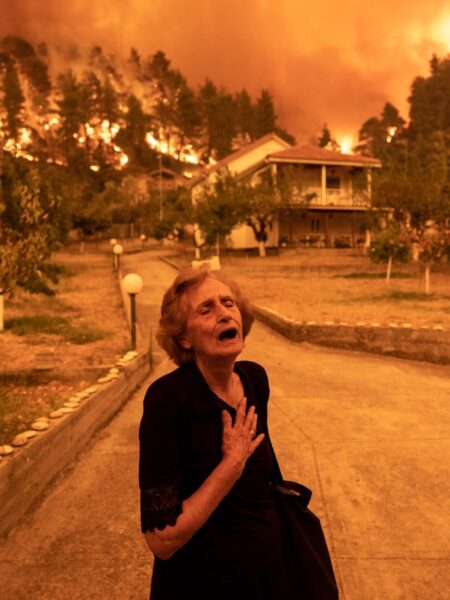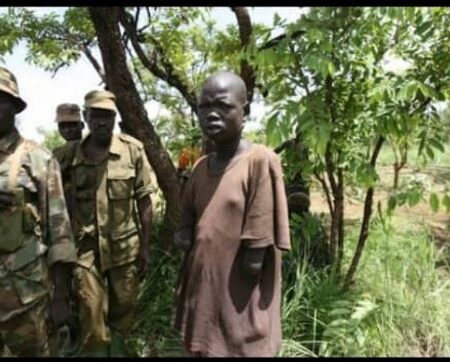Research Questions;
- What Impact Did The Post-Covid Economic Recession Have On The Academic Lives And Mental Health Of Students Of The University Of Ibadan?
- How did they cope during this period?
Introduction;
The sudden outbreak of the SARSCoV- 2 virus also known as Corona Virus or Covid-19 at the end of 2019 in Wuhan, China led to a world-wide public health challenge. The pandemic led to a worldwide lockdown. Many control measures were implemented in various countries and one of these included the closure of educational institutions. Nigeria was no different; the government as of March 19, 2020 through the Federal Ministry of Education ordered the closure of schools at various levels. This further reinforced instability as a nationwide strike commenced in public universities. This birthed the advent of virtual learning in many schools and while private universities in the country mostly had the online schooling on lock, federal universities were closed for the year as the Academic Staff Union of Universities (ASUU) embarked on a strike not long after the closure. This held back students in public universities for a school year.
By the end of 2020, the lockdown had eased up but the measures put in place were already affecting the economy negatively. Many people had lost their jobs in the first few months of the year when the pandemic started; a lot of companies downsized.
‘’in 2020, the Nigerian economy shrank by 1.8%, its deepest decline since 1983. The Covid-19 crisis drove the economic slowdown; the external context was marked by capital outflows, intensified risk aversion, low oil prices and shrinking foreign remittances’; (World Bank, 2021)
Unemployment meant a surge in the cost of living in households; struggling to feed, clothes and even house. For students, this meant a change in their social and academic lifestyles. By the beginning of 2021, ASUU called off the strike and public universities resumed online schooling. Classes and assessments were online and there were a lot of issues with proper recording of these assessments. A lot of students had to adjust to virtual schooling while living at home during a period of recession.
What is Economic Recession?
Economic Recession is a period of general economic decline which is typically accompanied by a drop in the stock market, increase in unemployment and decline in the housing market. (Study Academy, What is Economic Recession? 2015)
The National Bureau of Economic Research (NBER), an American private nonprofit research organization defines recession as “a significant decline in economic activity spread across the economy lasting more than a few months (NBER, Business Cycle Dating).
The NBER also offers a broader set of economic indicators that include employment rates, gross domestic income (GDI), wholesale-retail sales and industrial production. In a recession, these effects go different ways such as jobless claims going up, slow sales and dwindling of economic opportunities. Significant declines in economic activity are usually triggered by a complex, interconnected combination of factors including; economic shocks, loss of consumer confidence high interest rates, inflation, deflation, etc.( Erik, Business Insider Africa, 2020)
Short History of Economic Recession in Nigeria
Since independence, Nigeria has been through its own share of economic ups and downs. The economy has been majorly dependent on the petroleum industry since the late 1960’s. Due to increases in world oil prices, the economy grew rapidly but this had adverse effects on the agricultural sector; people living in rural areas moved to urban areas abandoning agriculture. This led to decrease in food supply in the country.
Nigeria then began import of food crops like rice and cassava which were very costly. The fluctuating oil prices and increasing population also affected agriculture. In the early 1980s, Nigeria’s economy started improving but in 1983, it faced an economic decline due to fall in petroleum (the major commodity of the country) demand. In order to alleviate this, the IMF’s Structural Adjustment Programme (SAP) was adopted. (Britannica, Nigeria Summary, 2021)
At the turn of the 21st century, Nigeria faced an unsteady revenue flow and resorted to borrowing funds from international sources. The country benefitted from a 2005 debt relief plan and by 2006 successfully paid their debt to the Paris Club (a group of creditor countries). (Britannica, Nigeria Summary, 2021)
Mid 2014, the oil price shock which happened affected the economy badly and in 2015, the economy dipped and the annual real GDP growth declined to 2.7% yearly from 6.2% in the previous year. By 2016, Nigeria recorded its very first recession since 1991. The 2016 recession was caused by the massive decline in oil prices. The National bureau of Statistics in a report said that
“Nigeria’s economy contracted 1.5 percent in 2016 due to lower oil revenues and a shortage of hard currency”……… “This Contraction reflects a difficult year for Nigeria, which included weaker inflation-induced consumption demand, an increase in pipeline vandalism, significantly reduced foreign reserves and a concomitantly weaker currency,” ( Chijioke & Ulf, 2017, para. 1 &3)
By the second quarter of 2017, Nigeria’s economy exited the recession recording a positive growth rate of 0.5% y/y (Chijioke & Ulf, 2017). The Covid-19 induced recession in 2020 affected many countries including Nigeria.
Literature Review/ Research Gap;
Papers have definitely been written about students and the impact covid-19 had on them but not a lot of publications have been written about how the post-Covid recession has affected the lives of undergraduate students here in the University of Ibadan. The society here perceives students as worry-free and not exactly in the real world; that is the working class world. Due to this mentality, students are not often considered as affected by any major issues happening. One of such cases is the post-Covid recession.
Lasode, A. O., Waare, O. C. and Soetan, O. J. in their work, Effects of Economic Recession on the Lifestyle of Undergraduates in Nigeria published in the European Journal of Social and Behavioral Sciences (2018) tried to determine the indicators of recession, students’ lifestyles during the recession and their coping mechanisms. The authors adopted a descriptive survey design and their location of focus was Lagos state. Questionnaires were used and the data analyzed to get the information needed for their research. The purpose of their research was fulfilled with the information that was gathered from sampled population. Their work gives insight into how recession has affected undergraduate students in the past.
Although their research doesn’t cover the specific area of interest in this research, it is valuable to it and will be used as a methodological framework for it. This research aims to contribute a fresh perspective to the effects of post-Covid recession in connection to the educational system.
Impacts of the Post-Covid Recession on Undergraduate students of the University of Ibadan
For the purpose of this research, three undergraduate students from UI were interviewed; 2 females and 1 male, all within ages 20-23:
- Adeleke Uzmat Iyunade
- Alonge Mary
- Rahji Abdul-Kareem Ayomide
Impacts on Academic Life;
People’s purchasing power decreased during the recession as prices of goods and services increased drastically. In Nigeria, if prices go up -‘to ba ti lo soke’, it won’t really reduce again. Due to the lockdown, everyone including my interviewees was at home. Being at home with their families meant their parents had more mouths to feed with no income increase. They sometimes got allowances but that wasn’t enough as they all had to make use of data for the online classes and that was a burden.
Balancing life as a student living at home without access to certain things and also feeling financially strained was difficult. The country’s state didn’t help as reliance on the epileptic power supply meant they couldn’t power their gadgets hence missed classes. The issue of persistent network instability during classes and tests; information was sometimes missed due to poor connection and system overload. During tests, some students couldn’t complete their tasks due to stringent time frames and portal closures. Lecturers weren’t so considerate, knowing the state of the country and the situations of many students; some were poor and couldn’t even afford data to attend classes. Some had no gadgets and had to borrow from others to do tests and the people who managed to do the tests couldn’t submit sometimes due to network disruptions. They also mentioned that they sometimes didn’t have access to notes and their classes were sometimes incomprehensible. Some lecturers didn’t even know how to properly operate their gadgets and this affected the quality of their learning.
In terms of their performances, they did relatively well as it wasn’t so difficult to concentrate once they adapted to their new reality. They had to put in more work as it was their first time schooling online. Living in Nigeria makes you realize that you have to keep adapting to situations no matter how difficult it gets.
In terms of support for online classes the school’s effort wasn’t so consequential; allotting data to students. The school’s distributed data didn’t reach everyone.
– “They probably had good intentions but their exhibition and execution was very bad. Apart from the fact that it was sparsely distributed among students, barely a lot of people got it. It was a miserly 3 gig of data. It wasn’t that much of help, it was just wishful thinking.”– Iyunade
They also didn’t feel like they had the necessary resources to effectively study at home. They all complained about funding for data, epileptic power supply and unstable network.
‘”When your phones and other gadgets are off, just know that you will be blank for the rest of the whole day”. – Mary
I asked the interviewees what they thought the school could have done better to help get the most out of their studies during the recession and the first thing they all said was,
‘They could have provided better sources of data for both students and lecturers’. – Interviewees
They all mentioned that the school should have trained the lecturers on how to handle gadgets, interact and actively engage their students online because a lot of classes were boring. They also talked about the importance of lecture notes and how the school should have mandated lecturers to give structured notes during the course of virtual learning.
Impacts on Mental Health
Mental health includes our emotional, psychological and social well-being. It affects how we think, feel and act. It also helps determine how we handle stress, relate to others and make choices (CDC, mental health). It’s a very important aspect in our lives that’s often overlooked especially here in Nigeria; Africa in general. In light of this, I asked the interviewees how they were adjusting to life post-covid and they all had different answers for me.
For Mary, it really affected a lot of things such as relationships, religion and finance but personally, she just had to adapt and adjust to the new reality. Rahji found it rather disturbing that people did not stick to the covid-measures anymore and were lax about it after the pandemic eased up. After being away from people she interacted with physically, her education and just getting out of a lockdown; Iyunade said she wasn’t trying to overwhelm herself so she’s just taking life one day at a time.
For Rahji, his family wasn’t badly affected by the recession- even with a reduced purchasing power; they had savings and some businesses his mom started earlier. The other interviewees had different stories to tell about how the recession affected their family;
“A lot of ways, especially in terms of food; even things that should not be- for example, water. It really wasn’t easy. Both family and friends were always complaining; they really did not have money and a lot of things had to be cut-down. Before, we used to eat more than 3 square meals a day; now everybody had to minimize how they eat and be conscious of how they spend”.- Mary
“During Covid, everybody had to stay home, that meant more expenses for my parents to bear, more mouths to feed. If we were in school differently, we would have eased their burdens so when the when the pandemic let up and the recession further hit; it put a strain on the finances of my parents. They had to give us more money which couldn’t cover the things we needed. It just affects you all round because now I have to think of ways to make more money for myself so I don’t burden my parents. I have to take care of my expenses by myself and these bills won’t sort themselves out so it’s pretty bad, it’s not that great.”- Iyunade
For one the interviewees, they felt very bad whilst another felt very irritated and annoyed. The last person felt like they were languishing. They all pretended to feel okay so as not to worry others. The situation after the pandemic also made them feel uncertain about their future but not drastically. It made them see the power of technology and opportunities open to them, even outside the country. It showed them that school was just a little part of their futures and plans could change at any time.
Coping Mechanisms
Coping mechanisms are strategies adopted by people while stressed or traumatized to manage unpleasant emotions. The interviewees all engaged themselves in other activities;
“I read and watched a lot of anime; I also attended accounting classes and took other courses online.”- Rahji
“I learnt other things such as catering and a few different skills- online.”- Mary
“I fully put myself into my Instagram content creation; it was a good distraction.”- Iyunade
They also made lifestyle changes as the pandemic eased up. Rahji made health-related changes; he became invested in personal hygiene especially washing hands, touching surfaces and using nose mask. In terms of human relations, he provided a shoulder for his friends to cry on even as there was social distancing. Mary learnt to be confident in terms of her academics; she was able to get to new heights. In terms of religion, she developed a personal relationship with God. Iyunade re-evaluated her values and started living more for herself due to the jolt of the reality of mortality.
After the pandemic and recession, everybody’s perspective widened as they consumed more information from the internet. Being a student during this period taught them that they could multitask, basically balancing academics with other life choices and with enough resources, excel in all.
Conclusion
This research shows that balancing life and online school whilst being home was difficult initially but the students adapted and did relatively well in their academics. In terms of mental health, they were affected but managed the stress by making healthy coping choices. The coping mechanisms observed were focused on the creative sides of the students and the use of the internet.
From the interviews, it can be deduced that the major indicator of recession in Nigeria is inflation. Also, the level of misinformation in society has reduced, people are more intentional with their health and relationships; they now cherish the connections with their friends and families because death could occur at any time. They are also adopting wiser financial choices in order to avoid a repeat episode of what the pandemic-induced recession caused.
Students also rely on money and the common market thus they are part of the economy and should not be overlooked in the implications of the post-covid recession. It had an impact on their families, academics, mental health and lifestyle and on their finances. It ultimately also affects student’s confidence, behavior, trust in financial/ educational institutions and overall wellbeing (Lasode, Waare and Soetan, 2018). The interviewees gave suggestions on how the school/government could do better:
- Provision of more data
- Better medical facilities and easy access to vaccines
- Reduction of tuition fees or provision of bursaries and scholarships for deserving people.
References;
- Britannica, T. Editors of Encyclopedia (2021, September 21). Nigeria summary. Encyclopedia Britannica. https://www.britannica.com/summary/Nigeria
- Chijioke Ohuocha, Ulf Laessing. February 28, 2017. Update 3- Nigeria’s economy shrinks in 2016 for the first time in 25 years. Retrieved from, https://www.reuters.com/article/nigeria-gdp-idUSL5N1GD2MJJ
- Erik Sherman. July 30, 2020. What is a Recession? How Economists Define Periods of Economic Downturn. Retrieved from, https://africa.businessinsider.com/finance/what-is-a-recession-how-economists-define-periods-of-economic-downturn/89zb8f0
- Lasode, A. O., Waare, O. C. and Soetan, O. J. (2018). Effects of Economic Recession on the Lifestyle of Undergraduates in Nigeria. The European Journal of Social & Behavioral Sciences, Volume 22(Issue 2), 119-136. https://doi.org/10.15405/ejsbs.235
- https://www.cdc.gov/mentalhealth/learn/index.htm
- https://www.com/ng/en/publication/nigerias-economic-recovery.html
- https://www.nber.org/research/business-cycle-dating
- The World Bank. June 15, 2021. Nigeria Economic Update: Resilience through Reforms. Retrieved from https://www.worldbank.org/en/county/nigeria/publication/nigeria-economic-update-resilience-through-reforms
- What is Economic Recession?-Definition, Causes & Effects. (2015, September 14). Retrieved from, https://study.com/academy/lesson/what-is-economic-recession-definition-causes-effects.html















